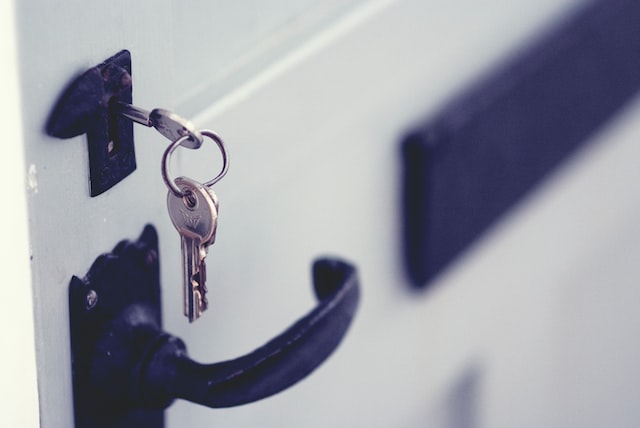The purpose of door locks is to provide safety and security for homes, businesses, or other facilities. They can be keyed or combination padlocks, or deadbolts. Some of these lock systems are electronic and use biometrics to unlock doors.
Keyed and combination padlocks
Combination and keyed padlocks are available in various types and sizes. The assa abloy locks Orlando is ideal for securing valuables and property. However, these types of locks come with a few disadvantages.
First, you get a different level of security with a combination padlock than you would with a keyed padlock.
The key to choosing a padlock is to consider your needs and budget. You can buy a low-priced padlock, but it may be easy to break. So instead, compare features and materials to ensure you obtain the finest lock.
Combination padlocks are a popular choice for door locks. These are often used in schools, gyms, and luggage. Because the codes can be changed when no longer needed, they eliminate the need for keys.
Deadbolts
Using deadbolts for door locks can help improve your home’s security. First, however, it’s essential to consider the different types of locks before choosing one. Deadbolts are available in various styles, finishes, and grades.
There are single-cylinder and double-cylinder models. Single-cylinder deadbolts are the most frequent type in homes. Keyed entry deadbolts require a key on both sides of the door.
There are also keyless entry deadbolts, which eliminate the need for keys. Besides being more convenient, these locks offer superior security. If you’re on vacation, you can program a lock to allow access to your family when you leave. Or you can control it from your smartphone.
Keyless entry deadbolts are popular because they offer the same security as mechanical locks without worrying about losing keys. You can also connect them to a smart home hub for added convenience.
Electronic locks
Electronic door locks offer a variety of benefits. They provide added security while also providing convenience. However, they also come with some potential downsides.
For instance, they may need to deliver the most efficient way to open a lock. It is especially true if the electronic component fails.
Another drawback is the cost. Depending on the model, these devices range from $200 to $2,500. They also require a smartphone, which can be expensive.
One major disadvantage of these locks is that they are not human-proof. Although they provide an extra security layer, hackers can still get past them.
Unlike traditional locks, intelligent electronic door locks also provide remote monitoring. They can be opened from anywhere using a smartphone, and many also feature cameras that provide photo logs.
Warded locks
Warded locks for door purposes are a security mechanism that uses obstructions in the lock to prevent the wrong key from entering. Wards are usually in the form of outwardly projecting plates, such as those seen on the door of a house.
They were used in various places, including bathroom doors, tool sheds, and utility room doors. They are still used in some applications, especially those requiring little security. However, despite the protection they provide, they are a little on the simple side.
Although warded locks may look simple, their mechanisms are complex. You’ll need a key that fits into the notch or slot on the ward to open the lock. In addition, some keys are explicitly designed for warded locks.
Biometric data
Biometric data for door locks is one of the best ways to enhance security in the home. It allows you to gain access to your home using your fingerprints.
Biometric security is fast gaining in popularity. The benefits of biometrics include more secure access to your home, easier access control, and greater convenience.
Your money is crucial when selecting the finest biometric lock for you. Prices vary depending on the brand and quality of the product. You may even qualify for discounts from some insurers.
For starters, you’ll want to choose a biometric lock that’s made of sturdy material. Some options include aluminum alloy or zinc alloy. Zinc alloy has less strength but is less corrosive than stainless steel.
Regarding safety, you should also consider biometric locks’ ability to detect and prevent deception. However, biometrics can also be hacked, so you’ll need extra precautions.




